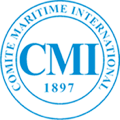Indonesian MLA: New Shareholding Requirement for Vessel Owners
In a significant maritime development, the Directorate General of Sea Transportation (“DGST”) has issued Circular Letter Number SE-DJPL 25 of 2023 (“CL 25/2023”) to inform vessel owners about the latest shareholding requirements outlined in Government Regulation No. 31 of 2021 on Shipping Activities Implementation (“GR 31/2021”).
Key changes introduced by GR 31/2021 involve stringent ownership criteria for joint venture companies owning vessels. Specifically, such companies must now be predominantly owned (51% or more) by either (a) a national shipping company wholly owned by an Indonesian citizen and established for commercial purposes or (b) an Indonesian legal entity entirely owned by Indonesian citizens, established for non-commercial purposes like social, tourism, and sports activities.
Before the implementation of GR 31/2021, vessel registration criteria included a minimum gross tonnage of GT 7 and mandated ownership by Indonesian citizens or legal entities domiciled in Indonesia. In the case of joint venture companies with foreign ownership, they were limited to a maximum foreign ownership threshold of 49%. Additionally, joint venture companies with foreign ownership were subject to specific conditions, such as a minimum gross tonnage requirement of GT 5,000 and the compulsory employment of Indonesian nationals as crew members.
Despite the implementation of GR 31/2021 on 2 February 2021, the DGST has intensified the enforcement of these updated regulations through the issuance of CL 25/2023. Significantly, CL 25/2023 states that these requirements are not only applicable to vessels registered after GR 31/2021 but are retroactively applicable to all companies with vessels registered in Indonesia. CL 25/2023 mandates all vessel owners to promptly adjust their shareholding composition in accordance with the requirements outlined in GR 31/2023.
However, the issuance of CL 25/2023 contradicts the non-retroactive principle adopted in Indonesia, creating a regulatory challenge and leaving vessel owners in a state of uncertainty.
For vessel owners engaging in the shipping industry with a Sea Transportation Business License, the DGST will assess compliance with shareholding requirements during the biennial license evaluation. Non-compliance may result in administrative sanctions, ranging from warning letters to license suspension or revocation. It remains unclear how the DGST will supervise vessel owners without a Sea Transportation Business License, particularly those owning vessels to support their main business activities. Whether such companies must adhere to the new shareholding requirement is questionable, potentially impacting not only the maritime industry but also any industry utilizing vessels for business support.
The implications of GR 31/2021 and CL 25/2023 extend beyond the maritime sector, affecting various industries. Business actors across sectors should carefully evaluate options to navigate these new requirements.
By: Beria Wieke
Regulatory Committee of the Indonesian Maritime Law Association
